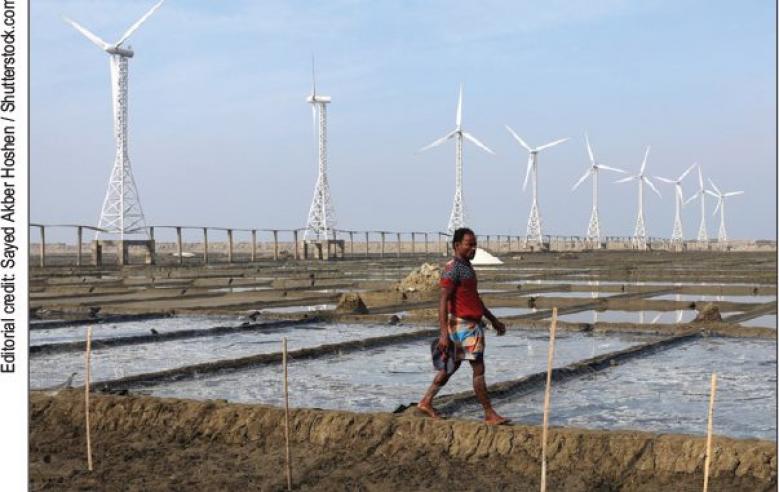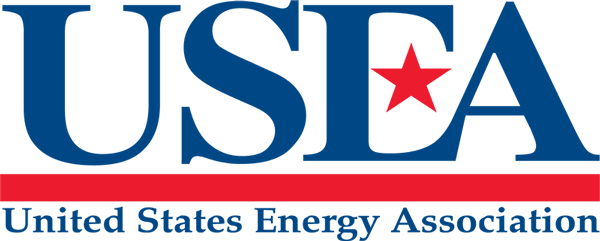
Article Series: Advancing Energy Security and Climate Resilience in Bangladesh
Originally published in July 04, 2022.
This blog was published in Powerline Magazine and Climatelinks platform as part of an article series titled, “Catalysing South Asia’s Clean Energy Transition”. The initiative was led by United States Energy Association under USAID/India stewardship and first published in Powerline Magazine followed by republication on USAID's Climatelinks platform.
By Dr A. Mondal, Deputy Chief of Party; M. Haider, Energy Finance and PPP Specialist; and R. Chowdhury, Communications Specialist, USAID-BADGE project
Bangladesh’s NDCs and sustainable energy targets
Bangladesh submitted its updated nationally determined contributions (NDCs) to the UNFCCC in August 2021 and is committed to reduce GHG emissions in the power, industrial and transportation sectors. Starting from 2011, the target is 6.73 per cent for business-as-usual (BAU) levels by 2030 (without any conditions), or by 15.12 per cent conditional on receiving sufficient and appropriate international support.
Current power scenario in Bangladesh
Between 2010 and 2019, Bangladesh’s average GDP grew by more than 6 per cent annually¹. Based on this rate, Bangladesh will need to plan for an 8 per cent growth in electricity demand each year. The total electricity supply increased from 29,247 GWh in 2010 to 80,423 GWh in 2021. According to the Power System Master Plan (PSMP) 2016, the country will need to bring 60,000 MW of new capacity online by 2041 to meet the demand².
Regardless of Bangladesh’s aspiration to significantly increase its renewable energy (RE) percentage (development potential up to 40 per cent by 2041), RE deployment in the country remains slow (3.1 per cent up to 2022). The current PSMP will not allow Bangladesh to fulfil its objectives under the Renewable Energy Policy 2008, or its NDC of 6.73 per cent GHG emission reduction from the BAU level.
USAID’s energy activities in Bangladesh
USAID’s energy activities in Bangladesh over the past years focused on enhancing the country’s capacity to address immediate and long-term energy challenges and improving the GoB’s energy planning and management. These activities focused on assisting the GoB and private sector stakeholders to transform the energy sector by administering an efficient, transparent energy market, which creates stability for international investment. Improving access to clean, affordable and reliable energy also provides social and economic growth opportunities, thereby creating more secure and stable communities. In Bangladesh, these benefits will contribute to accelerating the country’s energy security and economic sustainability, thereby supporting the U.S. Indo-Pacific Vision and specifically the Asia EDGE (Enhancing Development and Growth through Energy) initiative.
USAID is supporting the GoB to increase energy security and mitigate GHG emissions on the path to realising the 2041 vision. Under USAID’s Scaling Up Renewable Energy (SURE) programme, several activities were undertaken on integrated resource planning, grid integration for increased uptake of variable renewable energy (VRE) and cross-border electricity trade (CBET), and feasibility studies on energy auctions for electricity procurement. USAID assisted the GoB in making evidence-based decisions on generation, transmission and distribution planning for the country, with a focus on RE grid integration, CBET and procurement of electricity via auctions. The key contributions from the USAID-SURE project are consultations with key energy stakeholders; a series of capacity development trainings/webinars; and four published white papers.
Considering the challenges for the wind industry in Bangladesh, National Renewable Energy Laboratory (NREL), under USAID’s Wind Power Capacity Building programme, conducted technical capacity building workshops on wind project development and procurement in collaboration with the SURE programme. The workshops equipped participants with the knowledge and international best practices to evaluate pathways confidently and effectively for wind energy sector development in Bangladesh.
USAID’s recent Bangladesh Advancing Development and Growth through Energy (BADGE) project will facilitate the adoption of advanced clean energy technologies. The project will conduct market assessments, feasibility studies and capacity-building related to new policy and business models for advanced technologies, including retrofitting thermal generation plants to increase efficiency and flexibility, energy storage, RE hybrid projects and land-neutral systems like floating solar or off-shore wind.
The BADGE project will also work to designate RE zones, which will help harness this potential cost-effectively and help the Bangladesh Power Development Board (BPDB) and Power Grid Company of Bangladesh align plans for transmission and RE development. The project will work with the Bangladesh Economic Zone Authority to estimate the energy demand for economic zones and assess resources for meeting the current and future demand. The BADGE project will analyse issues and barriers faced in recent procurements and work with BPDP, Power Division, and the Sustainable and Renewable Energy Development Authority to define an overarching procurement strategy. A feasibility study on a wholesale electricity market will be completed, characterisation report on system-friendly auction design and an auction platform will be developed, and training on auction simulations will also be organised.
USAID’s BADGE and a new programme on Reinforcing Advanced Energy Systems (RAES) by NREL support increased the integration of VRE into the grid; supporting technical assistance by funding demonstration projects and potential commercial projects will go a long way in helping Bangladesh make this transition.
All these activities by USAID will lead towards achieving the country’s aspiration to significantly increase its renewable energy percentage and achieve environmentally sustainable and resilient economic growth.
